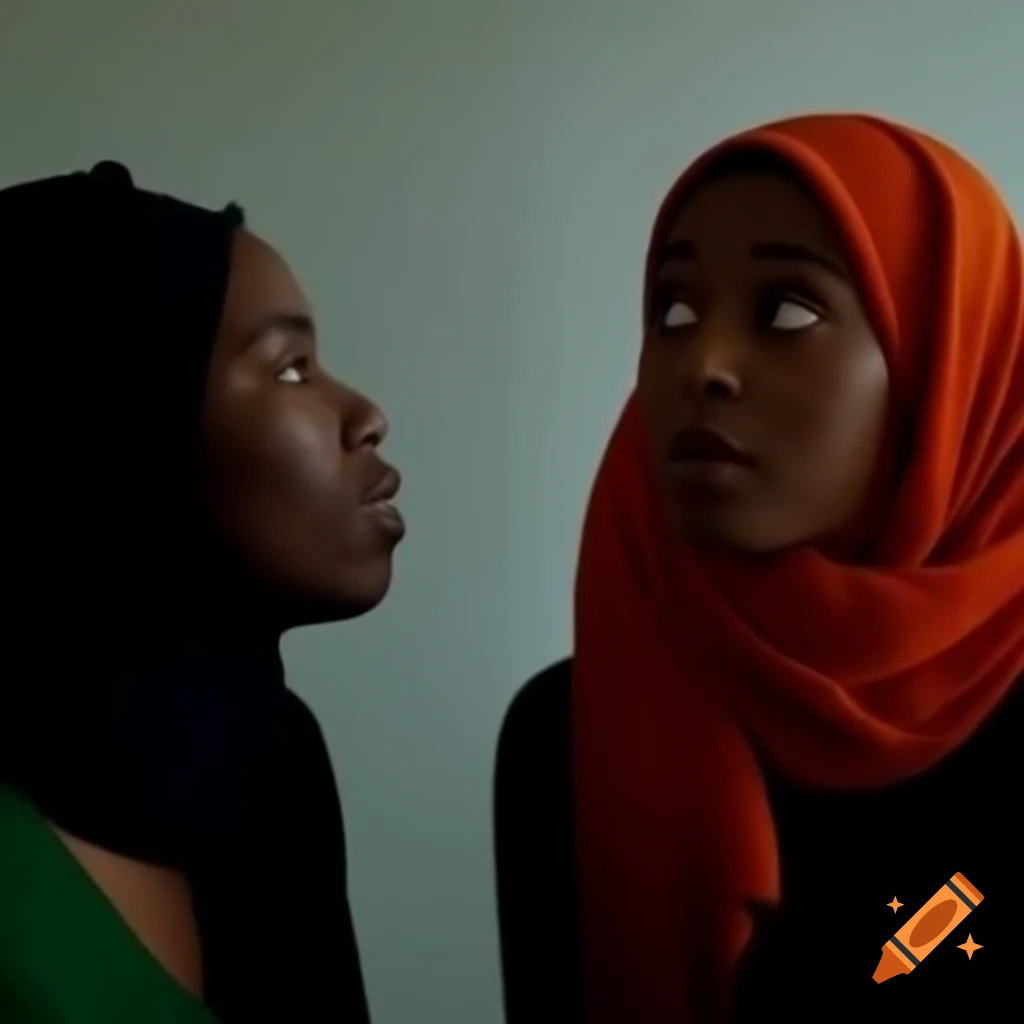Understanding The Challenges: South Asian Muslim Mental Health in West Yorkshire

The early teachings of Prophet Muhammad (peace and blessings be upon him) highlight the basic equality of all human beings, laying the groundwork for an anti-racist ethos within Islam. The admirable statement that “an Arab has no superiority over a non-Arab nor a non-Arab has any superiority over an Arab; also, a White has no superiority over a Black nor a Black has any superiority over a White” emphasises the pivotal values of unity, dignity, and justice that Islam upholds. The abovementioned excerpt, taken from The Farewell Sermon of The Prophet Muhammad (peace and blessings be upon him) serves not only as a clarion call against discrimination and prejudice, but also a reminder that one’s worth is not determined by race, ethnicity or colour, but by one’s faith, character and conduct.
Poor mental health amongst the South Asian Muslim community is a cause for concern, particularly in Bradford where the risk of psychosis in Pakistanis is significantly higher compared to the indigenous white population (Mahmood et al., 2021). While there are many factors that contribute towards the onset of psychosis, Islamophobia is recognised as one of the greatest predictors of adverse mental health, which consequently affects help-seeking behaviours in this population. My PhD research is embedded within Bradford District Care NHS Foundation Trust, and seeks to examine access, experience and outcomes of South Asian Muslims receiving family interventions for psychosis in the Bradford Early Intervention Service. Findings will inform clinical practice to ensure family interventions for psychosis are culturally adapted to reflect the cultural and religious needs of this community.
Islamophobia is an intense fear or dislike of Islam, and by extension, Muslims (Sufi & Yasmin, 2022). According to the Muslim Council of Britain (2023), Muslims have remained consistently vulnerable to religiously motivated hate crime offences with over 3000 offences committed against Muslims  between April 2021 and March 2023 in England and Wales (GOV.UK, 2023). Such hate crimes are only expected to increase owing to the spread of misinformation in light of the Southport tragedy. It is no surprise, then, that Muslims face greater mental health inequalities, though significant barriers to support preclude them from accessing mental health services (Mahmud, 2024). South Asian Muslims are far less likely to access appropriate mental health resources, given the stigma around mental health within the community itself. That is, concerns about acceptance within the community and social repercussions often lead families to ‘gloss over’ the difficulties of the illness, rather than seeking professional support.
between April 2021 and March 2023 in England and Wales (GOV.UK, 2023). Such hate crimes are only expected to increase owing to the spread of misinformation in light of the Southport tragedy. It is no surprise, then, that Muslims face greater mental health inequalities, though significant barriers to support preclude them from accessing mental health services (Mahmud, 2024). South Asian Muslims are far less likely to access appropriate mental health resources, given the stigma around mental health within the community itself. That is, concerns about acceptance within the community and social repercussions often lead families to ‘gloss over’ the difficulties of the illness, rather than seeking professional support.
Nonetheless, poor access rates of South Asian Muslims far transcend communal barriers and shed light on the gaps within mental health services, including the extent to which they can accommodate the cultural and religious needs of this population. Institutional racism is an experienced barrier to mental healthcare for South Asian Muslim communities (Prajapati & Liebling, 2021), in which attitudes, processes and behaviours result in discrimination through unintentional prejudice, unconscious bias, racial stereotyping and ignorance (Schouler-Ocak et al., 2021). South Asian Muslims are often stigmatised and stereotyped as ‘high risk’ individuals associated with aggression and terrorism, leading to lower referral rates and lack of engagement with mental health services (Mahmud, 2024). The spiteful response to Islam by the wider society, and misinformation perpetuated by the media  has only marginalised Muslims further in what they feel comfortable disclosing to mental health services and fear of how it will be received and managed (Younis, 2021).
has only marginalised Muslims further in what they feel comfortable disclosing to mental health services and fear of how it will be received and managed (Younis, 2021).
Ironically, South Asian Muslim communities are compelled to shoulder the responsibility for lower levels of access and are homogenised as “hard to reach” (Mahmud, 2024). Such labels are all but inclusive, and instead exonerate mental health services from all accountabilities for the lack of culturally sensitive approaches to increase service uptake and engagement. White, eurocentric models of mental healthcare are favoured by the National Health Service (NHS), which excludes Islam from therapeutic discourse altogether and lacks consideration or understanding for it (Younis & Jahav, 2019). Epistemic racism (Grosfoguel & Mielants, 2006) is thus intertwined within British mental health practice and echoes historical custom through which the West assumes authority in describing the cultural needs and experiences of Muslims, while lacking credible knowledge about the true nature of these communities. Understandably, Muslims have simultaneously expressed concern and dissatisfaction towards the way in which aspects of their religious and cultural identity are managed. That is, their unique experiences of psychosis and other mental health difficulties do not reflect Western bio-psycho-social paradigms, and instead seek the integration of alternative frameworks of understanding mental health that transcend Western, secular models (Tarabi et al., 2020).
 To this end, the research seeks to decolonise current mental health practices locally, by adopting a co-design approach. Furthermore, by prioritising the experiences and opinions of South Asian Muslim families, clinicians would engage in a more participatory democratic approach to family interventions for psychosis. Co-developing evidence-based psychological therapy interventions will better equip staff to respond to and understand distress in culturally sensitive ways and potentially allow South Asian Muslims of West Yorkshire who are facing mental health crises, to feel more comfortable interacting with NHS services.
To this end, the research seeks to decolonise current mental health practices locally, by adopting a co-design approach. Furthermore, by prioritising the experiences and opinions of South Asian Muslim families, clinicians would engage in a more participatory democratic approach to family interventions for psychosis. Co-developing evidence-based psychological therapy interventions will better equip staff to respond to and understand distress in culturally sensitive ways and potentially allow South Asian Muslims of West Yorkshire who are facing mental health crises, to feel more comfortable interacting with NHS services.
Zenab Sabahat is a PhD Student at the University of Bradford
REFERENCES
Grosfoguel, R., and E. Mielants. 2006. “The Long-Duree Entanglement Between Islamophobia and Racism in the Modern/Colonial Capitalist/Patriarchal World-System. Human Architecture.” Journal of the Sociology of Self-Knowledge 1 (Fall): 1–12.
Hate crime, England and Wales, 2022 to 2023 second edition. (2023, November 2). GOV.UK. https://www.gov.uk/government/statistics/hate-crime-england-and-wales-2022-to-2023/hate-crime-england-and-wales-2022-to-2023
Mahmood, C. B. . F. R. a. C. T. (2021). Migration and Psychosis: Evidence from South Asian Communities in Bradford. DOAJ (DOAJ: Directory of Open Access Journals). https://doaj.org/article/d863410c20644a2e8f2212fddc4f51d1
Mahmud, A. (2024). Addressing inequalities in accessing mental health services for Muslim university students in the United Kingdom: implications for attainment and wellbeing. Journal of Beliefs and Values, 1–16. https://doi.org/10.1080/13617672.2024.2320013
Mohammed, Z., & Mohammed, Z. (2023, October 5). Muslims targeted: MCB Reacts to Alarming Home Office Stats on Hate Crimes Against Muslims | Muslim Council of Britain. Muslim Council of Britain. https://mcb.org.uk/muslims-targeted-mcb-reacts-to-alarming-home-office-stats-on-hate-crimes-against-muslims-england-and-wales/
Schouler-Ocak, M., Bhugra, D., Kastrup, M. C., Dom, G., Heinz, A., Küey, L., & Gorwood, P. (2021). Racism and mental health and the role of mental health professionals. European Psychiatry, 64(1). https://doi.org/10.1192/j.eurpsy.2021.2216
Sufi, M. K., & Yasmin, M. (2022). Racialization of public discourse: portrayal of Islam and Muslims. Heliyon, 8(12), e12211. https://doi.org/10.1016/j.heliyon.2022.e12211
Tarabi, S. A., Loulopoulou, A. I., & Henton, I. (2020). “Guide or conversation?” The experience of Second-Generation Pakistani Muslim men receiving CBT in the UK. Counselling Psychology Quarterly, 33(1), 46–65. https://doi.org/10.1080/09515070.2018.1471587
Younis, T. (2021). The psychologisation of counter-extremism: unpacking PREVENT. Race & Class, 62(3), 37–60. https://doi.org/10.1177/0306396820951055
Younis, T., & Jadhav, S. (2019). Islamophobia in the National Health Service: an ethnography of institutional racism in PREVENT’s counter‐radicalisation policy. Sociology of Health & Illness, 42(3), 610–626. https://doi.org/10.1111/1467-9566.13047
Active Text, Tuesday June 14, 7pm-8pm, Zoom
All welcome to join us for a discussion in which Leeds-based artist and writer Pamela Crowe explores what the 'active' qualities of a text can …
How Can We Have Bus Services As Good As London and Manchester?
Matthew Topham from the Better Buses West Yorkshire campaign explains who owns and runs our buses at the moment, why our services are so bad …
What can we learn from Saltaire - West Yorkshire Walks
A walk led by Hawarun Hussain around Saltaire.
We asked ourselves two questions to frame the discussions as we walked round: "Why do we build …
